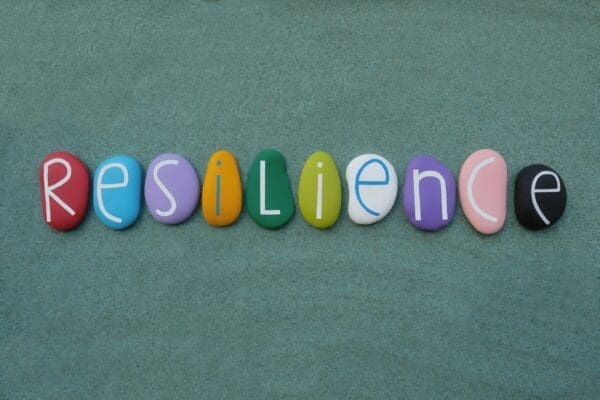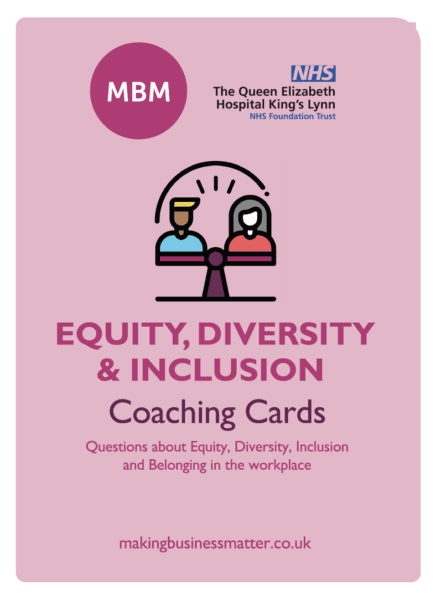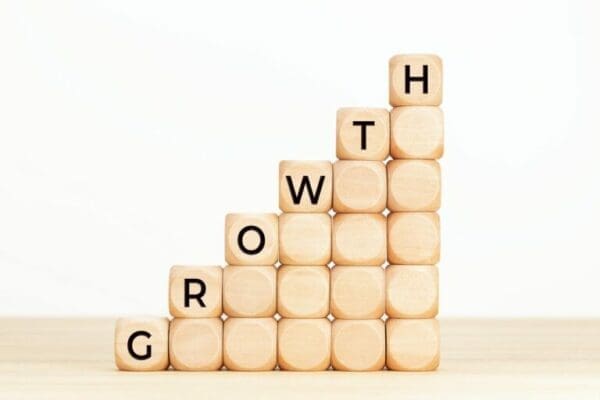Hard-Working Team Player
Employers, or rather, job adverts always write the same ‘requirements’ or ‘personality traits’ into their advertisements. It makes me laugh when scrolling through Indeed or the like when I see the same ‘we need a hard-working team player’ in every single advert. As if, instead, they might have been looking for a ‘selfish slacker with no motivation.’ Who isn’t looking for a hard worker who is going to blend in well with the current staff? Anyway, small rant about job adverts over – what’s the point of all this? Well, there is a consistency within these advert requests that does make sense. Flexibility and adaptability.
Now, it could be argued that this is as obvious as the desire for a hard worker but not everyone necessarily has these qualities at the forefront of their mind. Yes, you want to present yourself as dedicated, hard-working, determined, kind, and yet ruthless. These are all things going through your mind when interviewing for a job, or on a probationary period. There is a phrase that goes; working in the business vs. working on the business. Basically, it’s changing whether you’re doing the work or restructuring how the work is done.
These aforementioned qualities are all ones I’d describe as ‘in the business’ qualities. You must be determined to get work done, you must be dedicated by coming into work early and staying late… all things you’re doing to ‘do the work’. Those other terms, though, flexibility and adaptability are definitive ‘on the business’ qualities.
True Flexibility & Adaptability
This is why I am discerning them from the others. If you’re flexible, you can move your day around to make that extra meeting. Also, you can stay a little later at work so that things get done. There are many ways one can be flexible at work. When you’re adaptable, you can mould and change as tasks need it. Taking a little extra time to learn new software that makes a certain task easier, re-prioritising your work based on a huge influx of important emails that just came through… It’s all adaptability.
These two qualities change the way in which we do the work, rather than just doing the work. That’s why they are so important.
The Most Flexible and Adaptable Person I Know…
Mr Kris Hepner, a close friend of mine, is this person. Being such a logical, left-brain, fact-driven man, you wouldn’t expect him to have such adaptability. Yet, he does. In the most undeniable way.
Quick example – Kris and I were shooting a film together in London. Mid-shoot, at about 3 o’clock in the morning, I had an idea that the camera could come through the door to the outside without it having to be opened (it made sense for the story). Kris very quickly realised that this was not possible in the way I had envisioned.
‘Bugger, no worries.’ I said. Foolish.
I then went into the next room to speak to an actress. 10 minutes later, I return to set and there is Kris – taking the vent off the bathroom door. ‘We can pass the camera through here, dude.’ Ah yes… of course we can. The man bloody found a way. He understood the desired outcome and realised the obvious method wasn’t possible so adapted to the situation and found another way. I threw all sorts at Kris that night (not literally… much). I’d come up with these big ideas in the middle of a take and by Jove, that man would find a way. Happy to deviate from the script, from all the planning we spent so long doing. He just finds a way.
Be flexible and adaptable. Be like Kris.

How Can You Harness Flexibility and Adaptability?
There are a few key traits that all add up to improving your flexibility or adaptability. Each of them targets a specific element of each quality. Use these five traits to make yourself better at being flexible and adaptable.
1. Open-Mindedness
This is where it all starts, really. If you are not open-minded, you’re not in a position to adapt and change as tasks require it. Closed-minded people get stuck in their ways. Always being ready for something to change is the key to keeping your mind open. Surprises are the enemy of efficiency. As long as your mind is as open as possible, nothing shall surprise you on your journey to success.
Being more open-minded is quite easy. If you class yourself as a closed-minded person most of the time, that’s OK. Ultimately, you’re correct some of the time. Some things just don’t change. However, expecting change is the real key. I call it ‘planting seeds of doubt’. Imagine, you’re in a group project at work. Suddenly, your leader moves the deadline forward a week. Closed-minded? Panic. Obviously, you didn’t foresee that change and have not planned for it. Therefore, the task failed. Open-minded? Already expected something like this to happen and most likely have a contingency plan in place which means we can all move forward stress-free. I reckon I’d prefer the latter…
2. Creativity
Often, creativity is overlooked as a quality. It’s not just physical creativity that exists. For example, drawing and painting are things I believe most people associate with creativity. However, in terms of workplace creativity – there’s plenty of room for it – even if you’re task is left-brain as all heck. Creativity lies in how you choose to solve problems. A creative problem solver would look at a changed deadline and mould their solution to fit the task, rather than moulding the task to fit the solution – which requires a lot less creativity.
Remember, being creative is really at the heart of being adaptable. If you can conjure up bright ideas that can solve problems, you are golden. However, the key difference between simply being a creative problem solver and being adaptable lies in the situation in which it occurs. Someone who is adaptable is able to solve problems in a creative manner whilst in a task already. Often, the task itself is a problem to solve. That’s creativity. The problems that occur during the solving of the main task are the ones you must be flexible with. That’s adaptability.

3. Behavioural Modification
Here’s the third way to improve your flexibility and adaptability. This is something I think we can all benefit from in day-to-day life, regardless of our working life. It’s incredibly important to become well-versed in behavioural change. It’s a big part of what we do here at Making Business Matter, too. Being able to change your behaviour requires the recognition that it is not the right behaviour in the first place – that’s why this is so important. Being able to recognise your faults and adapt your behaviour is like having a superpower in problem-solving skills. If you can do it quickly, on the fly, even better. If you can do it quickly, on the fly, and motivate it through your entire team, you might as well stop reading this now. You are there!
Recognising faults within yourself may be easier than you think. An easy way to begin is simply by waiting until something goes wrong in your task. Stop, take a mental look at yourself, and pick holes in the methods you’ve used. Was my action the cause of this now arisen problem? Then, really analyse it. There’s a chance it lies in the logical methods you have undertaken, but there’s a bigger chance that it lies in your attitude to the task. I know that I make a lot of decisions, even when leading a team, that are based on my attitude towards the task. It’s not very efficient and it’s something I work on every day but it’s the sort of thing we choose to ignore because in our heads we are always right. Trust me, we are not.
4. Ingenuity
Clever, original and inventive. These are the three keywords within Google’s definition of ingenuity. It does tie in with creativity, as you can imagine. The difference, however, is the originality. Surface-level problem solving, in this case, means overcoming things like deadline changes, budget cuts, lack of staff or bad management. These are all things that can be overcome by some creative problem-solving – a little flexibility or adaptability. The ingenuity comes in when problems can be solved by an array of solutions. Yes, one plus one equals two, but a more complex question like; what would you do with a million pounds? That’s a question that requires some serious thinking. An ingenious person would evaluate their options, understand how they might grow that money through investment and present a step-by-step guide on a creative and most beneficial way to spend their million pounds.
Wider problems that involve product design and providing services are the types of problems that have to be solved by ingenious people. Together with the other three qualities, too.
5. Resilience
If you hadn’t thought of this one in the first couple of paragraphs of this article, I’d be surprised. Resilience is incredibly key in any given aspect of working life or life in general. And yes it’s needed to improve your flexibility and adaptability. Being able to bounce back from setbacks, mistakes and changes is one of the most invaluable superpowers you can take on when at work.

Having good resilience is like having a pit-stop crew at the race track. With no pit stop crew and no resilience, you have to stop and get out of the car before changing your own wheels and filling your own petrol tank up with fuel before returning to the driver’s seat and accelerating away. The fact that that took thirty-three words to explain says a lot.
I can see you counting them. Just trust me.
Anyway, with a pit stop crew you quite literally just drive up, stop, chill for three seconds and hit the pedal again. Job. Done. Resilience.
12 words. Two-thirds of your time saved.
Being more resilient is tough. A lot of it lies solely in your attitude and your mental strength and willpower to continue. If you are able to push aside the emotional side of setbacks and failure, you are able to see through to solutions that could come next in your path to success. There’s a great quote from ‘Kingsman’, where Merlin says to Eggsy; ‘Hold it together, remember your training. When the job gets done, you can shed a tear in private.’ I think this is a fantastic example of resilience. Keep going, solve the problem, get to the next junction and worry about the embarrassment of failure at a later date.

>> Equality, Diversity and Inclusion Coaching Cards <<
A Couple of Actionable Tips for Developing Flexibility and Adaptability
There are a few things that can be done in your working week, this week, in order to develop and expand on the existing levels of these skills that you already possess. Here, follow our tips for better results.
#1. Be Fearless
First, throw yourself in at the deep end. Let me explain. Flexibility and adaptability encompass a lot of fearlessness. Fearlessness gives you the ability to continue regardless of the situation. It helps you plant those seeds of doubt that make you more adaptable. It makes you more open-minded to failure and the ways in which you can get through it. Have an edge of fearlessness about you during these situations. Throw yourself in at a point you feel uncomfortable and learn to get comfortable. Repeat until as fearless as a call centre employee.
#2. Use Spontaneity
Next, inject some spontaneity into your working week. If you are working from home, take the laptop somewhere else every couple of hours. Do work in the garden, on the sofa, at your desk, vary it. This will really help you adapt to each situation. I find working in the car (not driving…) really annoying because you can’t spread out your stuff and have a decent overview. However, you adapt, and you understand how best to work in that space. The adaptation to these smaller things will translate into your ‘in the business work’.
#3. Learn to Use These Skills
Also, spend time honing these skills. Flexibility and adaptability are key qualities to have as a worker of any kind, especially for someone who leads a team. If you’re a manager, supervisor or the like – don’t only learn these skills – motivate your team to build on them too. You’ll have a small army of resilient, open-minded and creative employees to see you through to success every time.
And, Finally…..
It’s important to remember that not everyone finds these skills easy to use. And that’s fine. We all contribute to the success of the team with a mix of different talents and skills. However, some in the team may struggle with these 2 skills for various reasons.
Let’s Look at Flexibility First
For example, single team members can be more flexible about overtime or staying late, in comparison to a parent. This does not mean that one person is more committed than the other. Instead, it means that some people in the team have other responsibilities outside of the workplace.
Now, let’s Check the Adaptability
Personally, I have seen some people struggle with their ability to adapt for different reasons. For some, their time at the company can create a solid structure for processes and systems over an extended period of time. Therefore, if change is required for how a task is performed, it can be challenging to adapt based on experience to date. Here, be patient and give time for the change to take place. Set realistic time frames for the changeover. Also, explain the benefits of the changes to prevent resistance.
All in all, there are many reasons why these skills are important to develop, as mentioned throughout the article. Take time to enhance these skills at all levels. All in all, leaders and employees need to practice and use these skills throughout the company.
Updated: October 2023 by Ailish O’Rourke-Henriette




